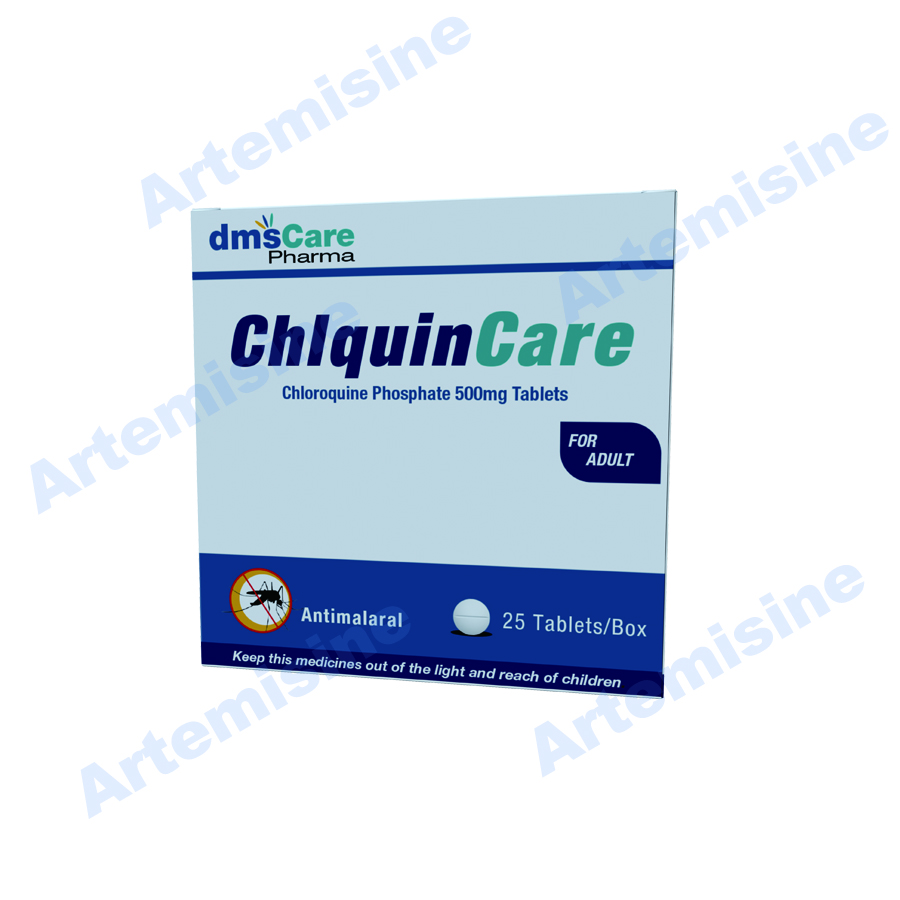Product Description
Product Name:
Chloroquine phosphate tablets
Contains:
Chlorquine phosphate 500mg
Package:
25 tablets/ box
INDICATIONS AND USAGE
Chloroquine phosphate tablets are indicated for the:
- Treatment of uncomplicated malaria due to susceptible strains of P. falciparum, P.malariae, P. ovale, and P.vivax.
- Prophylaxis of malaria in geographic areas where resistance to chloroquine is not present.
- Treatment of extraintestinal amebiasis.
Chloroquine phosphate tablets do not prevent relapses in patients with vivax or ovale malaria because it is not effective against exoerythrocytic forms of the parasites.
Limitations of Use in Malaria:
- Do not use chloroquine phosphate tablets for the treatment of complicated malaria (high-grade parasitemia and/or complications e.g., cerebral malaria or acute renal failure).
- Do not use chloroquine phosphate tablets for malaria prophylaxis in areas where chloroquine resistance occurs, Resistance to chloroquine phosphate tablets are widespread in P. falciparum, and is reported in P.vivax
- Concomitant therapy with an 8-aminoquinoline drug is necessary for treatment of the hypnozoite liver stage forms of P.vivax and P.ovale
CONTRAINDICATIONS
Use of chloroquine phosphate tablets for indications other than acute malaria is contraindicated in the presence of retinal or visual field changes of any etiology.
Use of chloroquine phosphate tablets are contraindicated in patients with known hypersensitivity to 4-aminoquinoline compounds.
Chloroquine is an antiparasitic medication that treats malaria. It works by increasing the levels of haeme in the blood, a substance toxic to the malarial parasite. This kills the parasite and stops the infection from spreading. Certain types of malaria, resistant strains, and complicated cases typically require different or additional medication. Chloroquine is also occasionally used for amebiasis that is occurring outside the intestines, rheumatoid arthritis, and lupus erythematosus. While it has not been formally studied in pregnancy, it appears safe. It was studied to treat COVID-19 early in the pandemic, but these studies were largely halted in the summer of 2020, and the NIH does not recommend its use for this purpose. It is taken by mouth.
Common side effects include muscle problems, loss of appetite, diarrhea, and skin rash. Serious side effects include problems with vision, muscle damage, seizures, and low blood cell levels. Chloroquine is a member of the drug class 4-aminoquinoline. As an antimalarial, it works against the asexual form of the malaria parasite in the stage of its life cycle within the red blood cell. How it works in rheumatoid arthritis and lupus erythematosus is unclear.
Chloroquine was discovered in 1934 by Hans Andersag. It is on the World Health Organization’s List of Essential Medicines. It is available as a generic medication.
